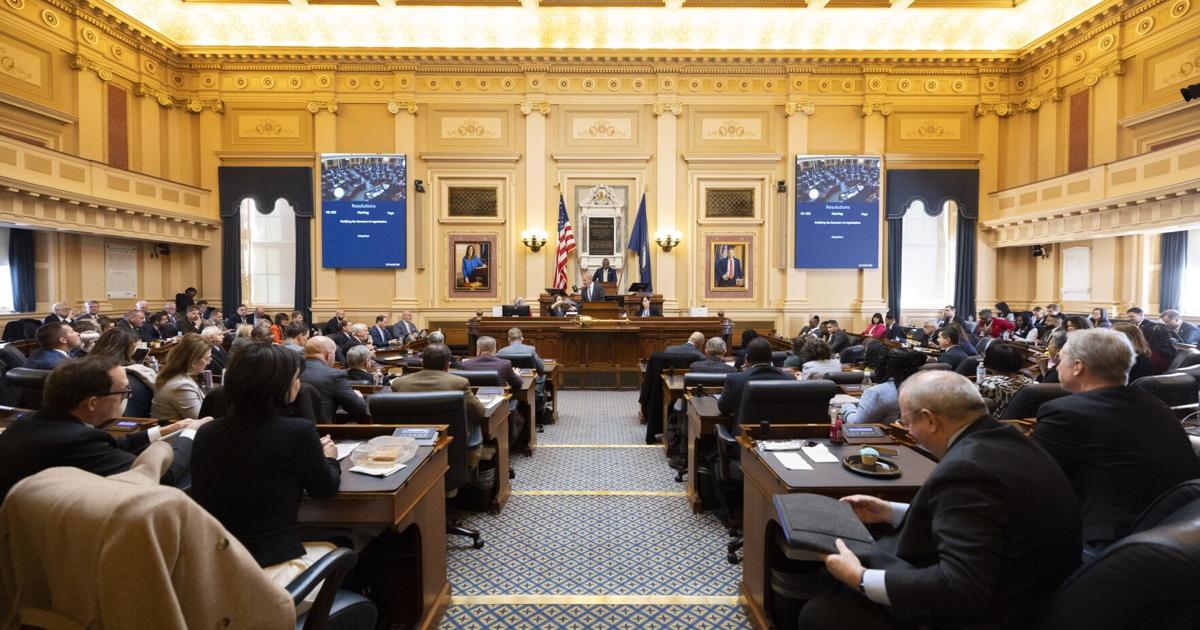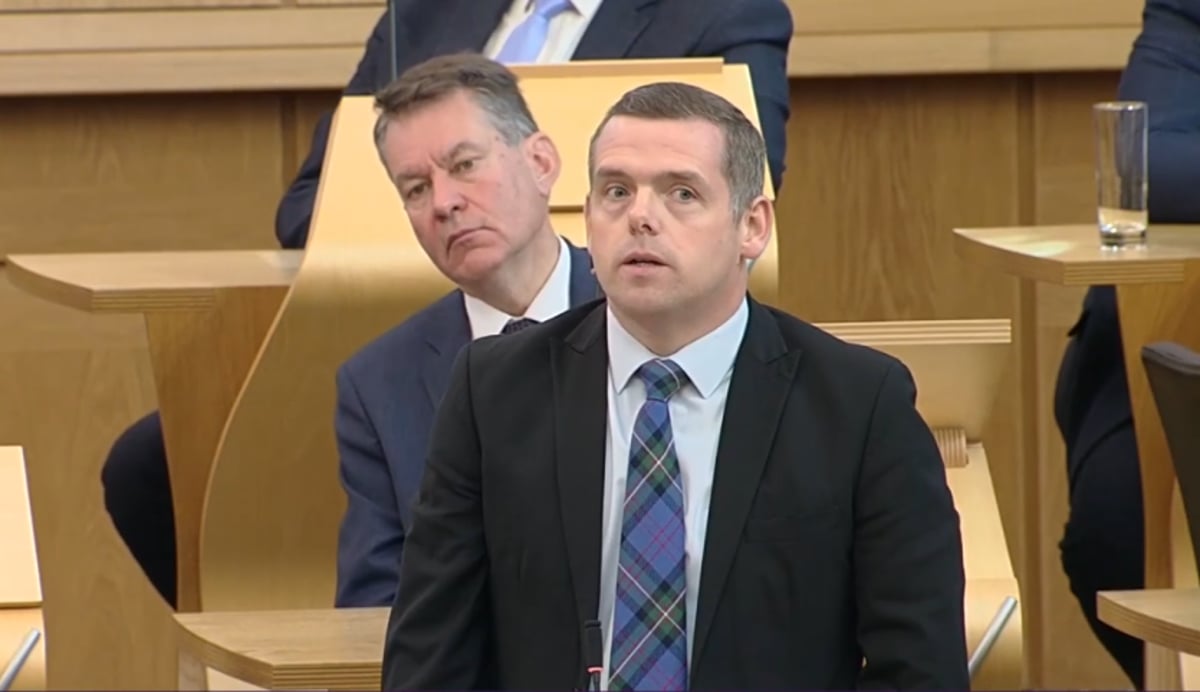
With more than $13.3 million in cash and help with door-knocking, campaign staff salaries and events, partisan groups and special-interest donors this summer placed their bets on the hottest House of Delegates races – including some that many never before thought competitive.
In the Shenandoah Valley’s House District 34, made up of Harrisonburg and part of Rockingham County, Del. Tony Wilt, R-Rockingham, won his last two elections with votes of 57% and 59%. He now faces a challenge from Democrat Andrew Payton, a Harrisonburg educator.
The House Democratic Caucus backed Payton with a donation this summer of $50,000 in cash and $6,500 in in-kind help – services, not cash. Wilt, whose $51,000 in summertime contributions came mainly from local backers, raised less than half the total Payton did, although his current war chest is nearly three times as large.
Just north of Richmond, the longest-serving member of the House, Del. Bobby Orrock, R-Caroline, did not face a Democratic opponent between 1995 and 2015 and received 56% of the vote in 2023. He faces a challenge from Democrat Stacey Annie Carroll, an accountant who received nearly $77,000 in cash and in-kind support from the House Democratic Caucus.
All 100 seats in the House of Delegates are up for election. During this year’s General Assembly session Democrats held 51 seats to Republicans’ 49. One seat in a strong GOP district is now vacant. Democrats are running candidates for all 100 seats. Republicans are not running candidates in 17 strong Democratic districts.
“We’re putting Republicans on notice,” said House Speaker Don Scott, D-Portsmouth, whose powerful position, as with his predecessors, brings campaign contributions rolling in. Between July 1 and Aug. 31, he raised more than $760,000 even though he’s running unopposed. That, along with the funds he’d previously raised, allowed Scott to cut a $2 million check to the House Democratic Caucus on July 10.
And that money flowed on, across the state in $50,000 and $80,000 chunks to Democrats in key races as well in tens of thousands of dollars-worth of door knocking and campaign staff. The funding boosted Democrats not just in districts that party activists have long said they want to flip, such as Altria executive May Nivar’s challenge to first-term Del. David Owen, R-Goochland, in House District 57.
Nivar and Owen have shaken the money tree harder than almost anyone: between them, they raised more than $681,000 between July 1 and Aug. 31.
Only the contest in House District 22 between former Del. Elizabeth Guzman, D-Prince William, and Del. Ian Lovejoy, R-Prince William, in the pricey Washington media market raised more in the two-month span: nearly $830,000, a Richmond Times-Dispatch analysis found.
“The money being spent across the commonwealth is staggering, and it’s because Virginia is the biggest game in national politics,” said John McGlellon, a political scientist at the College of William and Mary.
Nivar’s backing this summer included a $50,000 cash donation from the House Democratic Caucus last month, as well as $22,500 worth of polling, and $8,775 in the form of her campaign manager’s salary and benefits. The PAC for America’s Future, a national group that funds state legislatures’ Democratic caucuses, gave $63,750.
Owen, whose July and August donations of $266,000 amounted to less than two-thirds of Nivar’s $414,000, fared better than Wilt or Orrock with party backing.
The Republican Party of Virginia provided $89,000 worth of printing and postage for campaign materials. Former Speaker Todd Gilbert, R-Shenandoah, gave $20,000, Minority Leader Terry Kilgore, R-Scott, $15,000 and and Del. Terry Austin, R-Botetourt, $15,000.
In western Chesterfield’s House District 73, Democrat Leslie Mehta, former legal director for the American Civil Liberties Union of Virginia, received more than $80,000 in cash and services from the House Democratic Caucus in July and August. First-term Del. Mark Earley, R-Chesterfield, received just $1,500 worth of services from the Republican Party of Virginia, while other party committees and leaders gave $5,000.
Earley still entered the final weeks of the race with a larger war chest. He had a balance of nearly $172,000 at the end of August, to $123,000 for Mehta, to campaign in a district that split 49% to 49% in last year’s presidential election.
Expanding the map?
Down on the Peninsula, House District 69, based in parts of York and James City counties, is drawing attention, though the Republican incumbent was unopposed in 2023. The Democratic Party donated more than $10,250 of printing and mailing service for Dr. Mark Downey’s bid to unseat Del. Chad Green, R-York. Gilbert, the Republican former House speaker, contributed $10,000 to Green. The Republican Party provided nearly $5,500 in campaign services in a district that’s long been a GOP stronghold.
“We’ve known for most of this year that Democrats feel the wind at their backs. … Democrats have shown a lot of confidence that they will increase their majority in the chamber, and perhaps by a lot,” McGlennon said.
“As the campaign has progressed, the overwhelming number of competitive races have been in Republican-held districts, and the targeting has been shifting beyond districts carried by Kamala Harris but represented by a GOP delegate, to districts won by Trump by a small margin,” he said.
“The thing to watch out for is whether funding, ads, and mailings shift back to the Democrats’ original targets or move to GOP candidates who were regarded as safe earlier this year,” he added.
In House District 71, which includes parts of James City and New Kent counties and all of the city of Williamsburg, Democrats pumped even more money into Jessica Anderson’s challenge to House Republican caucus chair Amanda Batten, R-James City, far outstripping what GOP donors sent to their candidate.
Anderson got a $50,000 contribution from the House Democratic Caucus and $83,750 from The PAC for America’s Future, a committee that’s been a big funder of state legislatures’ Democratic organizations. Democrats’ nationwide outreach to small donors through online portals helped bring in small sums from more than 1,100, providing a total of more than $32,000.
Batten, whose July and August fundraising amounted to just 35% of Anderson’s, received $20,000 from former speaker Gilbert. Most of her other donations came from local residents and business groups.
“When a party has a lot of money it can put funds into races that are a reach,” said Stephen Farnsworth, a political scientist at the University of Mary Washington.
“If the other side responds, that means that much less for the most competitive races,” he said.
“Democrats are betting on a tsunami election,” Farnsworth said.
The bets, on either side, are big – although generally speaking, they’re bigger on the Democrats’ part.
In Guzman’s challenge to Lovejoy, she’s received a $50,000 cash contribution from the House Democratic Caucus and more than $105,000 worth of polling, printing and mailing and campaign staff salaries and benefits.
Lovejoy has received $85,000 from Gilbert’s political action committee, $20,000 from Gilbert and more than $80,000 in campaign services from the Republican Party, to hold a Prince William district that went 52% to 48% for Lovejoy in 2023, but 49% to 48% for Democrat Kamala Harris over Republican Donald Trump in 2024.
In the New River Valley’s House District 41, which includes parts of Montgomery and Roanoke counties, Democrat Lily Franklin came within 183 votes of defeating Del. Chris Obenshain, R-Montgomery, in 2023.
In this year’s rematch, the House Democratic Caucus contributed nearly $72,000 in summertime cash and in-kind services. That has rallied Republicans, with Minority Leader Kilgore’s PAC giving $35,000, former Speaker Gilbert, $20,000 while the House Republican caucus kicked in $11,000 and the state party more than $41,000 in campaign services – a rare case where Republican leaders and groups gave more in July and August than their Democratic counterparts did.
Still, the $353,000 total Franklin raised in those two months was 45% more than Obenshain’s, while her balance of $226,000 as of Aug. 31 was three times as large as Obenshain’s heading into the most intense months of the election campaign.
Richmond area
The race to round up resources for the final sprint to election day – now that early voting has started – is particularly intense around Richmond.
In House District 75, which includes parts of Chesterfield and Prince George counties and all of Hopewell, Democrat Lindsey Dougherty is trying to unseat Del. Carrie Coyner, R-Chesterfield.
Dougherty has received nearly $77,000 in cash and in-kind campaign services from the House Democratic Caucus, as well as nearly $13,000 of in-kind help from the Democratic Party of Virginia/
Dougherty has been tapping into Democrats’ extensive online networks to bring in more than 1,360 small donations – these average just under $27.
Coyner has received a $25,000 contribution from Clean Virginia, a political action committee focused on environmental and energy issues that usually backs Democrats, as well as $20,000 from Gilbert and $10,000 from Del. Chris Runion, R-Rockingham, who represents a solidly Republican Shenandoah Valley district and is quietly emerging as a fundraising power. Coyner also received more than $88,000 of mailing services from the Republican Party of Virginia.
Collectively, the two candidates raised more than $563,000 in July and August and spent $497,000. Coyner’s spending exceeded Dougherty’s by 44%.
In House District 82, which includes Petersburg, parts of Dinwiddie and Prince George counties and all of Surry County, Kimberly Pope Adams is again challenging Del. Kim Taylor, R-Dinwiddie.
Adams received more than $80,000 in cash and campaign services from the House Democratic Caucus and nearly $24,000-worth of services from the Democratic Party of Virginia in her second bid to unseat Taylor.
Republicans have fired back with $20,000 from former speaker Gilbert, $20,000 from Austin, $15,000 from Runion and nearly $44,000 of campaign services from the Republican Party of Virginia.
Hampton Roads
In House District 86, which includes parts of the city of Hampton and York County and all of the city of Poquoson, the House Democratic Caucus gave more than $84,000 in cash and campaign services to executive coach Virgil Thornton. The Democratic Party provided nearly $43,000 of campaign services for his challenge to Del. A.C. Cordoza, R-Hampton. Cordoza received $20,000 from Gilbert and $8,700 in services from the state party,
On the other side of Hampton Roads, in House District 89, which includes parts of Chesapeake and Suffolk, the House Democratic Caucus gave $80,000 in cash and services to Karen Carnegie’s bid for the open seat that the retiring Del. Baxter Ennis, R-Chesapeake, won in 2023. Republican Mike Lamonea received $30,000 from Runion, $20,000 from Gilbert and $28,500 in services from the state GOP.
Democrats’ defense
Democratic funding suggests the party is playing defense in some districts – but here, too, far more flowed into Democrats’ campaign funds in July and August from party groups than to Republican challengers.
House District 84 includes parts of the city of Suffolk, Isle of Wight County and the city of Chesapeake and all of the city of Franklin.
Del. Nadarius Clark, D-Suffolk, received $80,000 in case and $22,500 worth of campaign services from the House Democratic Caucus and nearly $21,000 in services from the state Democratic Party. His opponent, Realtor and former Vermont state legislator Felisha Storm received $27,000 from five Republican House members and one state senator.
In Prince William County’s House District 21, the House Democratic Caucus gave more than $111,000 in cash and services to Del. Josh Thomas’ re-election campaign while the state party provided nearly $13,000 in services. The $10,000 his opponent Gregory Lee Gorham received from the House Republicans accounted for almost all the $12,500 he received in July and August.
Gorham’s spending of $9,600 left him with $626 in his campaign account at the end of August. Thomas, after spending more than $271,000 had nearly $285,000 in his fund.
“With partisan control in the balance, the stakes are high, and that always drives campaign funding,” said Mark Rozell, dean of the Schar School of Policy and Government at George Mason University.
“Donors are putting their money where they think they can have the most impact,” he said.
“Democratic donors see opportunity here to flip a lot of seats, given the unpopularity of President Trump’s policies. Recall that many GOP delegates got swept out during Trump’s first term and the party took a major beating in the statewide races back then as well.”



